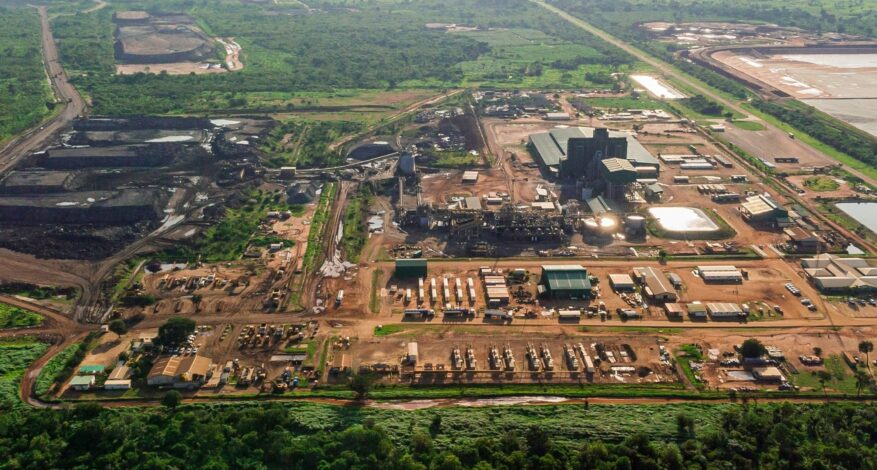IRMA participated in the United Nations Framework Convention on Climate Change (UNFCCC) 28th Conference of the Parties (COP28) held in Dubai, UAE from 30 November to 12 December 2023. As an admitted UNFCCC Observer for this and future COPs, IRMA participated in COP28 to engage across sectors on issues of importance to our mission and vision, including addressing environmental and social impacts of mining for the energy transition.
An IRMA op-ed leading up to COP28 detailed the need for advocates and policymakers at COP28 and beyond to act quickly to implement robust environmental and social standards for mining, noting that meeting mineral demands for the energy transition requires responsible practices that emphasize transparency, industry-wide standards, and engagement.
This post summarizes IRMA’s participation at COP28, represented by our Law and Policy Director, Kristi Disney Bruckner.
What is COP28?
COP28 was the 28th annual meeting of the UNFCCC Conference of the Parties (COP). The COP meets every year, bringing together governments from almost every country in the world in a multilateral decision-making forum to act on climate. COP28 focused on implementation of the Paris Agreement, include limiting the global temperature increase to 1.5 degrees Celsius, adaptation to climate change, and achieving net-zero emissions by 2050.
Over 100,000 delegates participated in COP28, making it the largest COP to date. Delegates included member states (Parties to the UNFCCC), Indigenous Peoples, scientists, journalists, youth, business leaders, philanthropy, investors, lawyers, academics, and a wide range of other experts.
What was the significance of COP28?
COP28 was significant for many reasons and led to multiple outcomes and commitments. The first Global Stocktake under the Paris Agreement took place at COP28. The Global Stocktake is an assessment of collective progress of Parties to meet Paris Agreement objectives. It indicated Parties are not on track to meet their 1.5 degree target, thus more ambitious action is needed, now. Following a debate around phasing out fossil fuels, Parties agreed in the Global Stocktake to “transition away from” fossil fuels. Parties launched a loss and damage fund for affected communities facing climate impacts. They agreed to triple renewable energy capacity and double energy efficiency improvements by 2030. Parties were encouraged to develop more ambitious, economy-wide emission reduction targets that cover all greenhouse gases, sectors, and categories, aligned with the 1.5 degree Celsius limit. These are to be incorporated into national climate pledges, referred to as Nationally Determined Contributions under the Paris Agreement, by 2025.
On the topic of mining and the energy transition, UN Secretary General António Guterres remarked at the 2nd December G77 + China COP28 Leaders’ Summit that:
“The extraction of critical minerals for the clean energy revolution — from wind farms to solar panels and battery manufacturing — must be done in a sustainable, fair and just way. Demand for these minerals is set to increase almost fourfold by 2030.
At my Climate Ambition Summit, I heard repeated calls from G77 leaders for their countries and communities holding these minerals to fully benefit with maximum local added value. We cannot repeat the mistakes of the past with a systematic exploitation of developing countries reduced to the production of basic raw materials.”
The UN Secretary General then announced that he is establishing a Panel on Critical Energy Transition Materials that will “bring together governments, international organizations, industry and civil society to develop common and voluntary principles to guide extractive industries in the years ahead in the name of justice and sustainability.” IRMA will continue to engage with UN leaders, stakeholders, and Indigenous rights holders to inform this initiative and promote the best practices in the IRMA Standard and system.
IRMA Participation
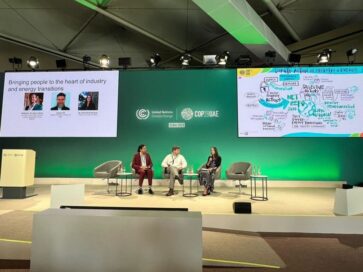
As IRMA’s representative at COP, Kristi spoke at multiple events, including:
- Marrakech Partnership for Global Climate Action Industry Action Event organized by the UN High-Level Climate Champions, Marrakech Partnership, and World Business Council on Sustainable Development, focused on “the transformative levers within the energy and industry sectors, aligned with the Energy and Industry 2030 Breakthroughs and the Sharm el Sheik Adaptation Agenda of the Marrakesh Partnership.” The event provided “a platform for stakeholders to collaborate, share insights, and create strategies to drive these essential changes, charting a course toward a more sustainable and equitable future for all.”
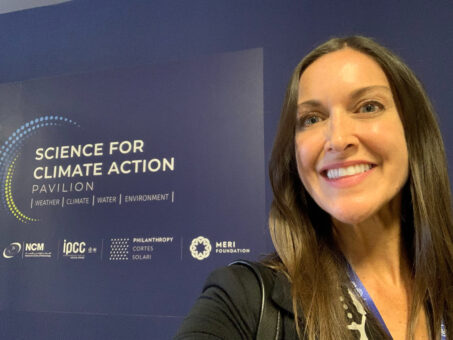 Marrakech Partnership for Global Climate Action Implementation Lab “Enablers to Tripling Renewable Power Generation by 2030 Through a Just, Financed, and Equitable Transition.” This event, organized by the African Export Import Bank, Global Renewables Alliance (GRA), IRMA, and Utilities for Net Zero Alliance, launched a new report by GRA, the COP28 UAE Presidency, and the International Renewable Energy Agency (IRENA) detailing how to increase renewable energy capacity to 11,000 GW by 2030. The panel highlighted IRMA’s work across sectors to improve environmental and social standards in transition mineral supply chains.
Marrakech Partnership for Global Climate Action Implementation Lab “Enablers to Tripling Renewable Power Generation by 2030 Through a Just, Financed, and Equitable Transition.” This event, organized by the African Export Import Bank, Global Renewables Alliance (GRA), IRMA, and Utilities for Net Zero Alliance, launched a new report by GRA, the COP28 UAE Presidency, and the International Renewable Energy Agency (IRENA) detailing how to increase renewable energy capacity to 11,000 GW by 2030. The panel highlighted IRMA’s work across sectors to improve environmental and social standards in transition mineral supply chains.- Private Adaptation to Climate Change: The Case of the Mining Industry, organized by the Intergovernmental Panel on Climate Change (IPCC), World Meteorological Organization, Philanthropy Cortés Solari through MERI Foundation, and l’Université Côte d’Azur, featured examples of adaptation responses of companies in the mining sector, as well as the importance of cooperation between the public, private, and civil society sectors to ensure private sector adaptation efforts.
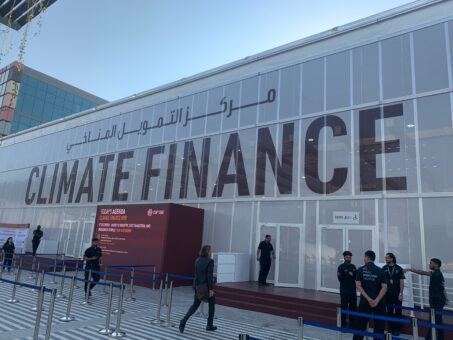 Regional Approaches to Financing Just Transition, organized by Ceres and Barclays, explored the need for regional approaches to a just transition and tailored financial strategies for diverse geographical needs to ensure an equitable shift towards a sustainable economy. The panel considered impacts on local communities and Indigenous rights holders and metrics financial institutions can utilize.
Regional Approaches to Financing Just Transition, organized by Ceres and Barclays, explored the need for regional approaches to a just transition and tailored financial strategies for diverse geographical needs to ensure an equitable shift towards a sustainable economy. The panel considered impacts on local communities and Indigenous rights holders and metrics financial institutions can utilize.
IRMA was featured in the UN High-Level Climate Champions Top of the COP Newsletter, noting IRMA’s Call to Action inviting a state-owned enterprise that produces transition minerals to become the first to engage in an independent IRMA audit.
IRMA also participated in meetings organized by Indigenous rights holders, NGOs, business organizations, mining companies, investors, foundations, governments, voluntary standards, law associations, academic institutions, and beyond, expanding IRMA’s network and deepening relationships across sectors.
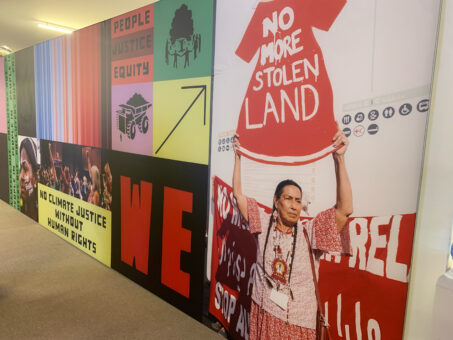





 Regional Approaches to Financing Just Transition
Regional Approaches to Financing Just Transition
